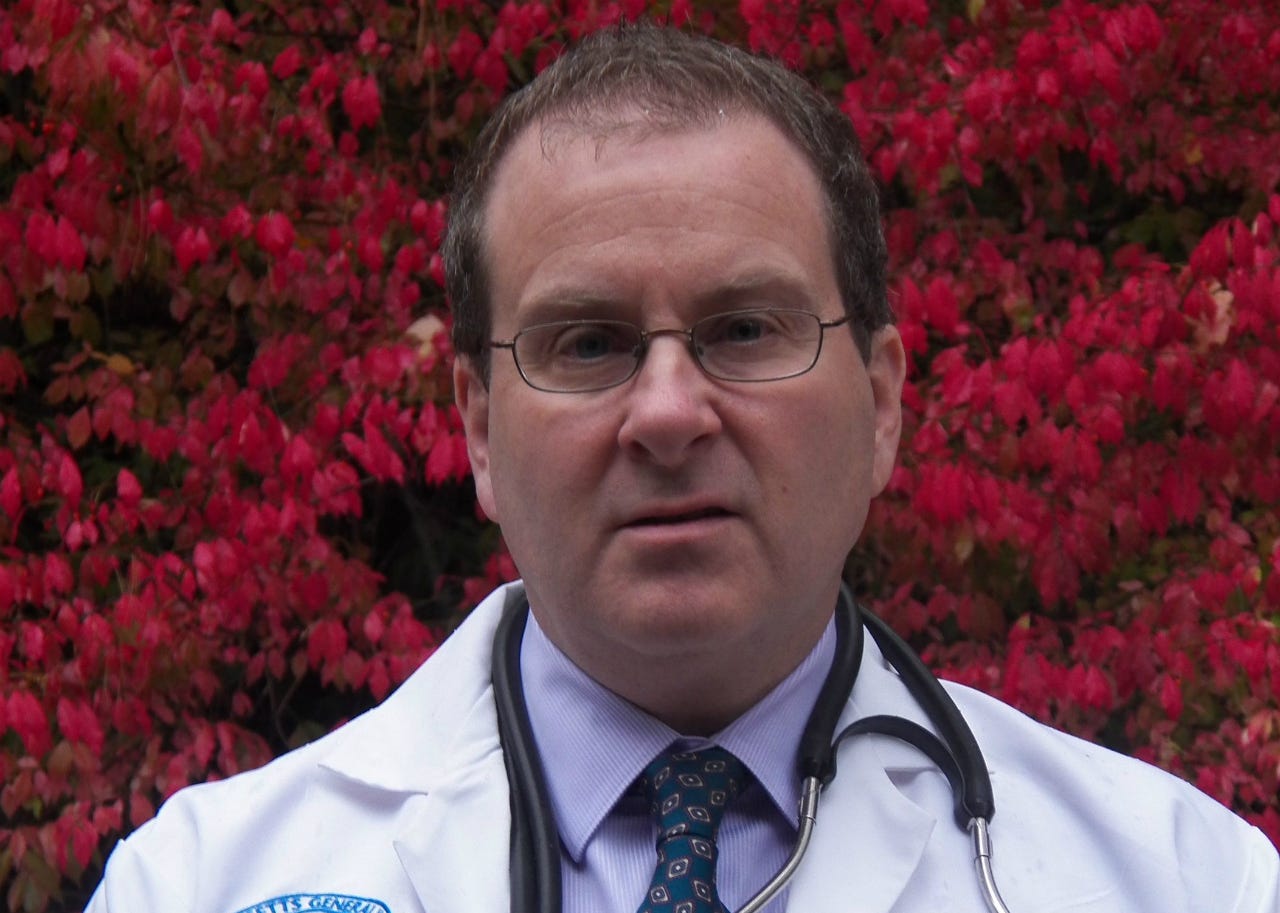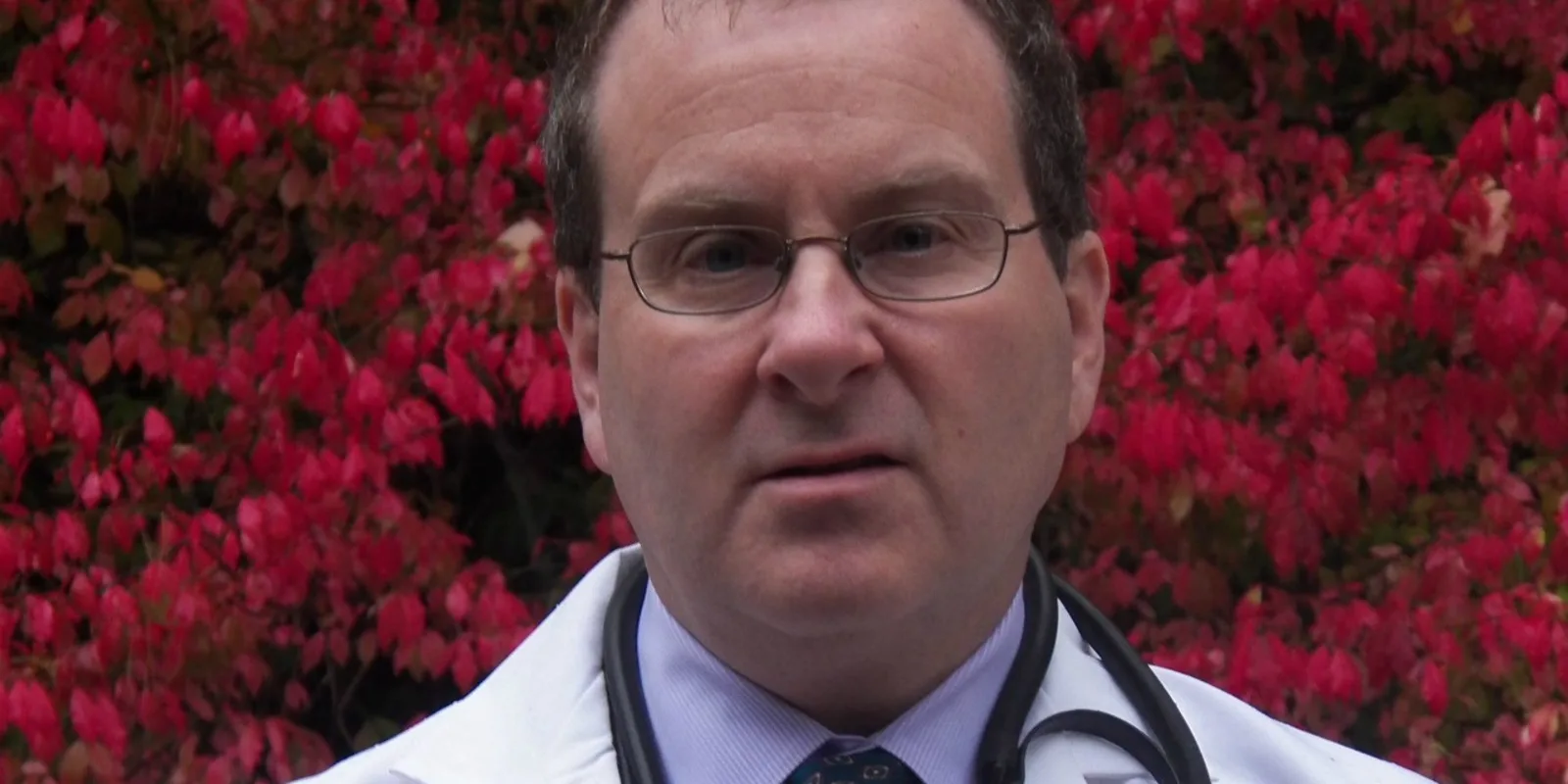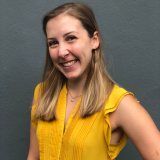
To what extent should clinicians hide their own personal health problems from their patients?
Dr. Peter Grinspoon released his memoir, Free Refills, about his struggle with addiction and regaining control of his life in 2016. He quickly learned that some patients actually respected him more for having battled and faced his own illness.
Once patient in particular was an older woman taking care of her young grandchildren, acting as the primary caregiver. He had never thought to ask where their parents were. After his memoir was published, the patient volunteered the information.
“She said, ‘I read your memoir and at first I wasn’t sure that I wanted you to be my primary care doctor at all anymore because you’re a drug addict. But then I thought about it and my daughter is in prison for selling heroin and my son is dead from an overdose of heroin and those are my two kids. That’s why I’m running around trying to take care of my grandkids because both of my kids are gone because of heroin.
"I figured you, having been addicted to opiates, would be in a better position to understand what I’m experience and what I’m going through more than any other doctor. So I decided yes, I absolutely want you to continue being my doctor,’” Dr. Grinspoon remembers.
That change in her perception is what Dr. Grinspoon is fighting for: change in the stigma around addiction. He says one way to make headway is to simply change the language. Shift away from “getting clean” (which implies having being dirty). Move from the word “addict” to “in recovery” and other non-stigmatizing language.
“The more society — including physicians, nurses and other health care providers — starts understanding addition as more of a chronic disease and less of a moral failing, I think some of the stigma is going to start to fall by the wayside,” Dr. Greenspoon hopes.
And he hopes that stories like his own will encourage others to tell theirs.
“As more people have the courage to come forward and be open about their stories, I think that really helps because people will learn that anyone can get addicted and anyone can recover. That’s part of why I wrote my memoir, to show that a friendly primary care doctor who is well-intentioned can be addicted to opiates,” he explains.
After Dr. Grinspoon tried Vicodin during medical school, he spent the next ten years seeking out a way to recreate that high.
He would peek in medicine cabinets and steal pills — whatever necessary to maintain that feeling. “You get to the point where you don’t feel good anymore when you take the pills,” says Dr. Grinspoon, “but you just feel awful when you don’t.”
His addiction got so severe that he started writing Vicodin prescriptions for his 18-year-old nanny — prescriptions that he would pick up and ingest himself.
“It didn’t take the astute pharmacist long to figure out I wasn’t an 18-year-old woman from New Zealand. The pharmacist asked ‘What’s your birthdate?’ and I didn’t know it,” Dr. Grinspoon remembers. “That was pretty bad. Two weeks later the state police and the DEA were waiting for me in my office, which was not fun at all.”
He was immediately stripped of his medical license and was facing felony and criminal charges. He found himself on probation and unable to leave the state without the permission of Homeland Security. On top of this, he was in the middle of a divorce and struggling to see his two young children. Officials turned him over to the Physician Health Services, an organization that provides confidential consultation services to physicians experiencing substance abuse, among other health issues.
“It was all a very bleak time in my life,” admits Dr. Grinspoon. He relapsed a couple times and it took about three and a half years — “and like 20 gallons of urine testing” — to get his license back.
Today, Dr. Grinspoon looks back at that bleak time and his recovery and says he’s a better doctor for it.
“I’m a lot more humble. It’s a humbling experience to have to build yourself up again from nothing, and you realize being a physician is a privilege, not a right,” he says. He also says that since coming out with his story, he’s never had a no-show for a patient in substance abuse recovery.
“My patients who are in recovery really were encouraged by [my story]. They were like, ‘Wow, you’re one of us,’” Dr. Grinspoon says. “I connect with them on a whole different level. The doctor-patient level, but also on the recovery-to-recovery level. If they relapse I understand what it’s like to relapse. If they’re having cravings I understand what it’s like to have cravings. So I feel like I’m particularly non-judgemental and understand what it’s like to be throwing up because you’re withdrawing from opiates.”
In addition to caring for patients who struggle with addiction, Dr. Grinspoon gets to help fellow physicians who are struggling, too.
“In 2018, eight years after the police entered my office, I was invited back as an Associate Director for the same Physician Health Services to help other physicians who were addicted. So I got to sit at the exact same table on the other side, helping physicians who come in from their addiction looking like, just I did, something the cat dragged in. I came full circle, from one end of the spectrum to the other.”
In regaining the privilege of being a physician, he’s grateful to have the opportunity to help those experiencing exactly what he went through.
“I know there is a lot of hassle and stress in being a primary care doctor,” admits Dr. Grinspoon, “but you get the variety, you get the human comedy and tragedy played out in front of you non-stop everyday. And you get to help people.”






